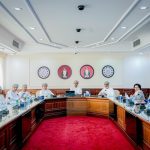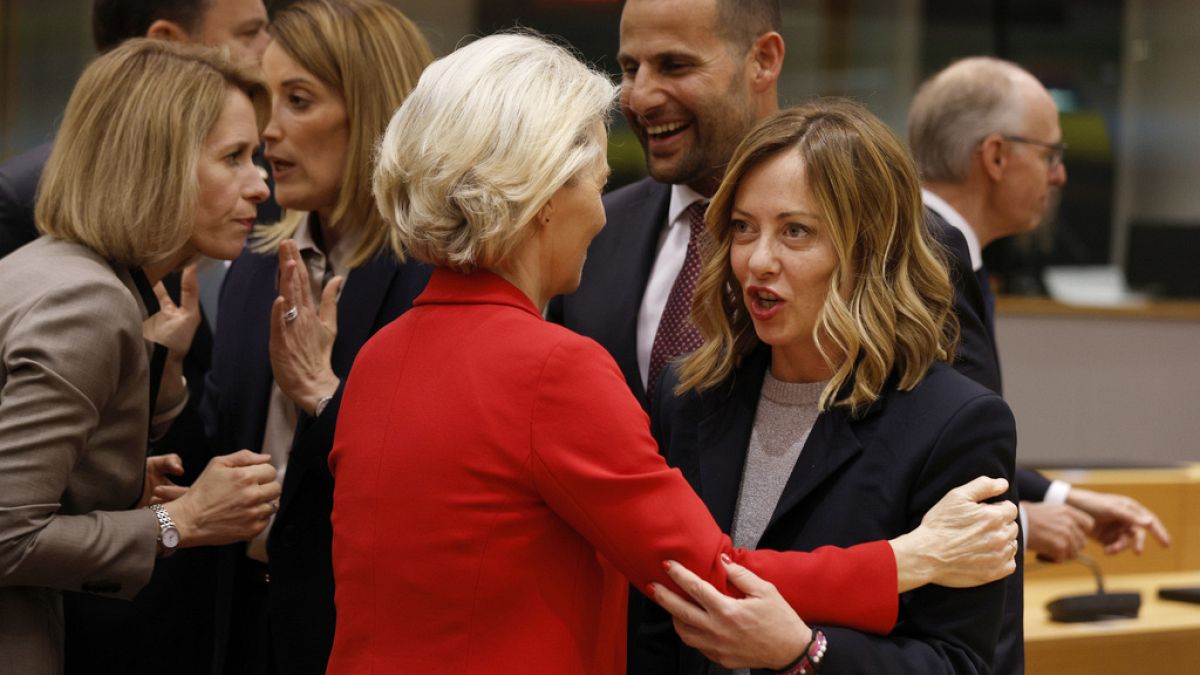In a recent Eurovision debate of presidential candidates, Ursula von der Leyen, the president of the European Commission, expressed her willingness to collaborate with MEPs from Giorgia Meloni’s hard-right Brothers of Italy party after the EU election in June. Von der Leyen highlighted that the Italian prime minister meets three essential criteria for potential partners: being pro-EU, opposing Russia’s Vladimir Putin, and supporting the rule of law. This statement has been viewed as a bold move, yet it carries the risk of further isolating von der Leyen from the center-right EPP party.
The Italian media has discussed von der Leyen’s comments regarding working with the Brothers of Italy party as a significant development in EU politics. While the move may be perceived as strategically advantageous for von der Leyen, it could potentially strain her relationship with the EPP party, of which she is currently a member. Von der Leyen’s openness to collaboration with the hard-right party demonstrates her willingness to engage with a diverse range of political perspectives within the EU Parliament.
Von der Leyen’s approach to potential partners in the aftermath of the EU election reflects her commitment to finding common ground and forging alliances that align with her values and objectives. By emphasizing the importance of EU integration, opposition to Putin, and support for the rule of law, von der Leyen is signaling her priorities for future collaboration. This strategic positioning could have implications for the broader political landscape within the European Parliament moving forward.
As the president of the European Commission, von der Leyen’s willingness to engage with MEPs from the Brothers of Italy party suggests a willingness to bridge ideological divides and work towards consensus on key issues facing the EU. By seeking common ground with a party considered to be on the far-right spectrum, von der Leyen is demonstrating her commitment to inclusive governance and diplomacy. This approach could potentially lead to greater unity and cooperation within the EU Parliament, as diverse voices and perspectives are brought into the decision-making process.
The potential risks associated with von der Leyen’s openness to collaboration with the Brothers of Italy party include backlash from more centrist political factions within the EU Parliament. By aligning herself with a hard-right party, von der Leyen may face criticism for engaging with political actors whose views and policies diverge significantly from mainstream EU values. However, von der Leyen’s decision to prioritize common goals such as EU integration and the rule of law may ultimately outweigh these concerns and contribute to a more inclusive and diversified political landscape within the EU.
In conclusion, Ursula von der Leyen’s willingness to work with MEPs from the Brothers of Italy party following the EU election represents a strategic move towards building alliances and fostering collaboration within the European Parliament. Despite potential risks and criticism, von der Leyen’s emphasis on common values and objectives signals a commitment to inclusive governance and diplomatic engagement. By seeking to bridge ideological divides and find common ground with diverse political perspectives, von der Leyen is positioning herself as a leader capable of navigating complex political landscapes and fostering unity within the EU Parliament.











